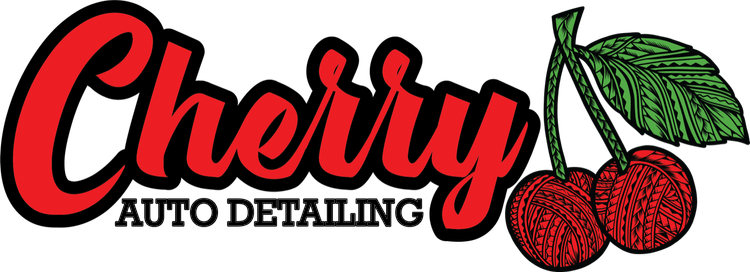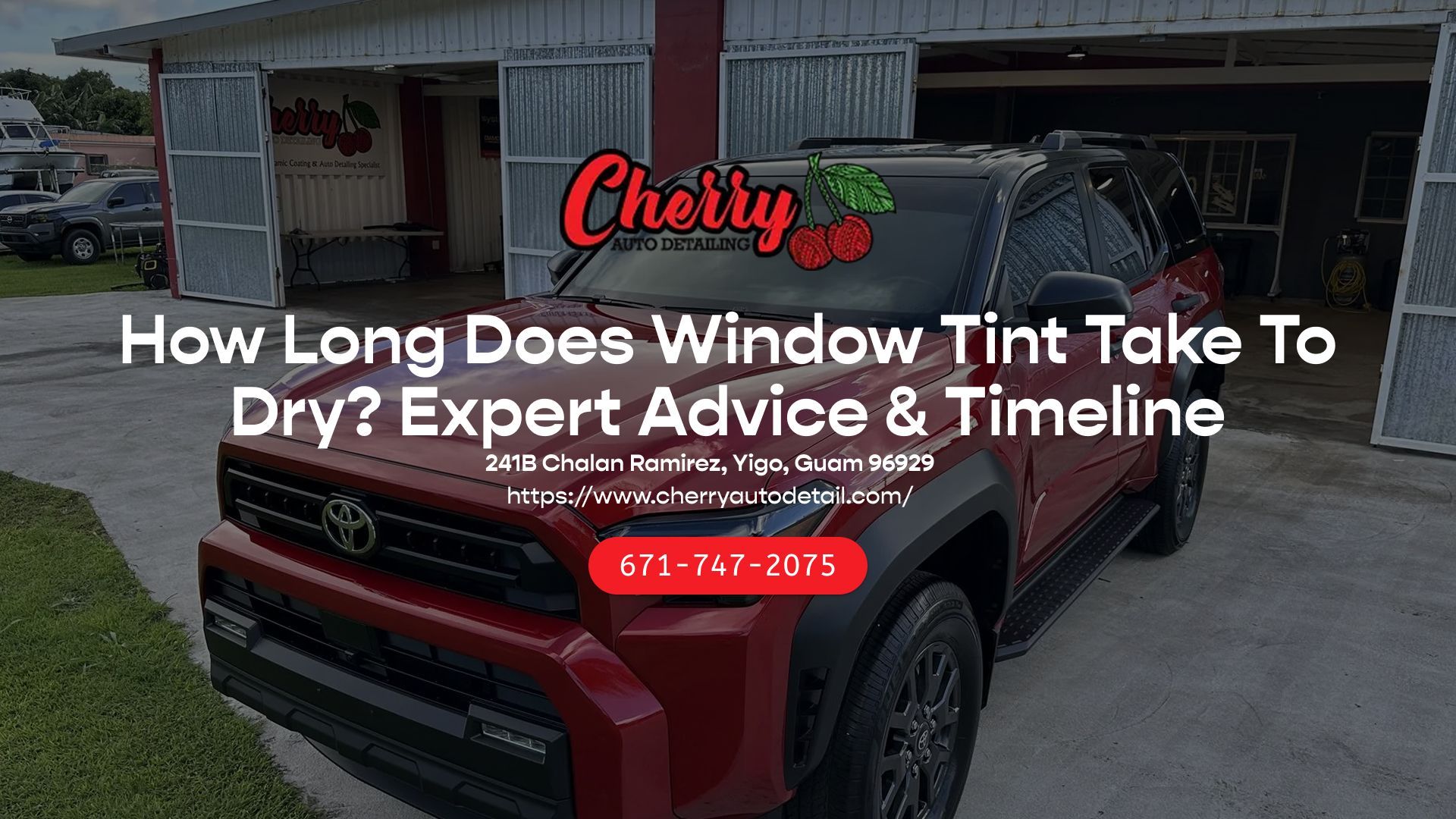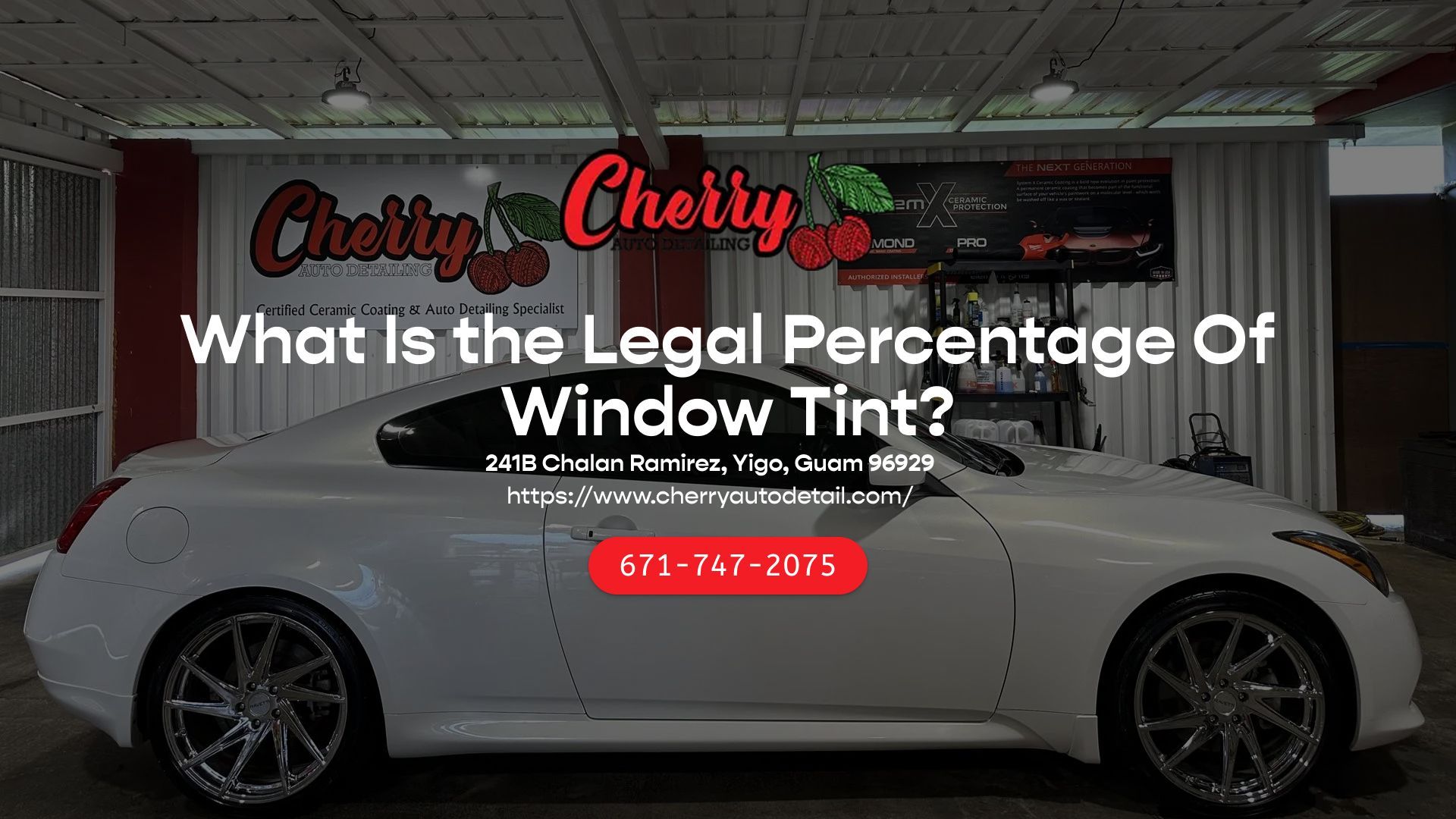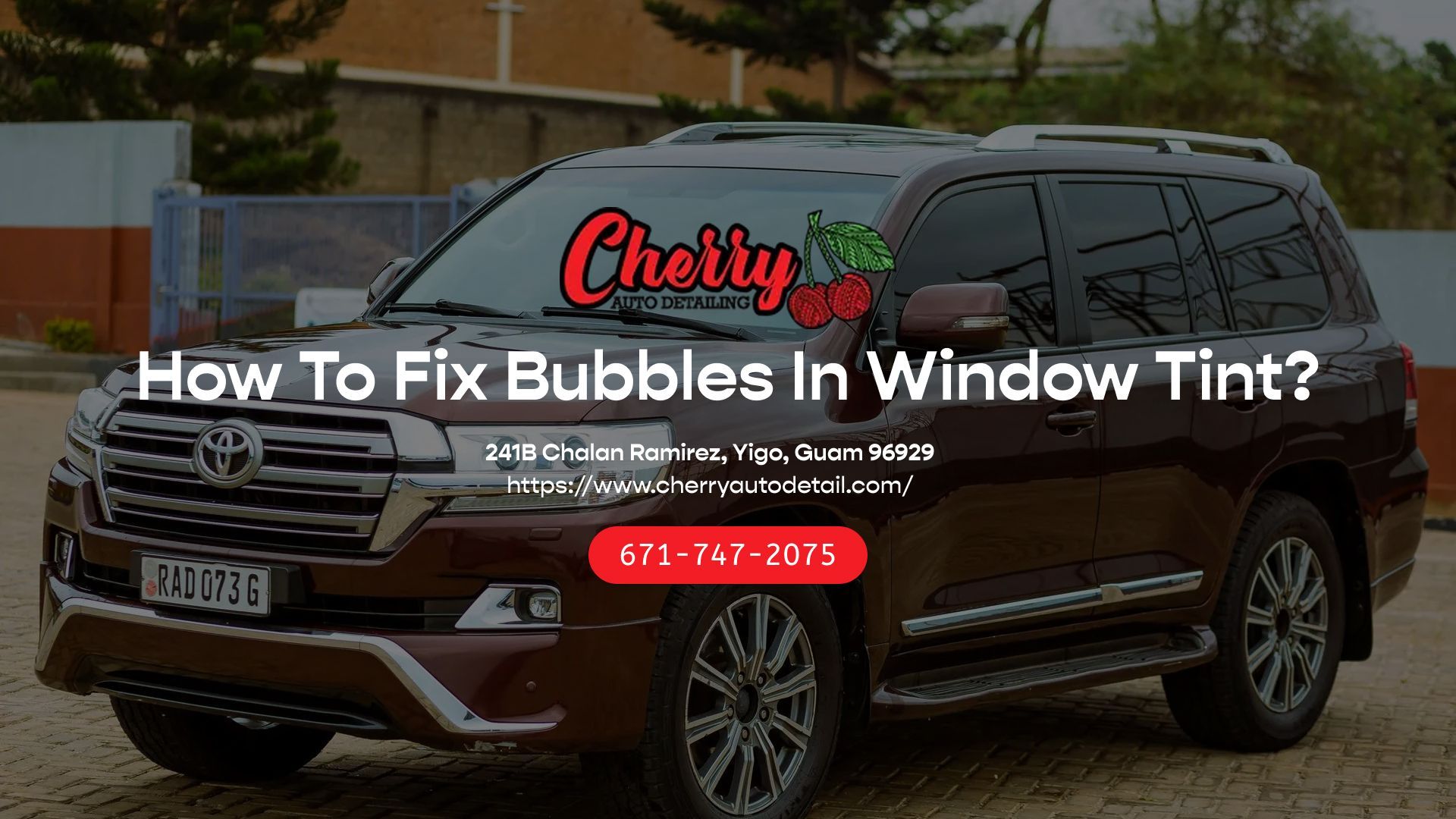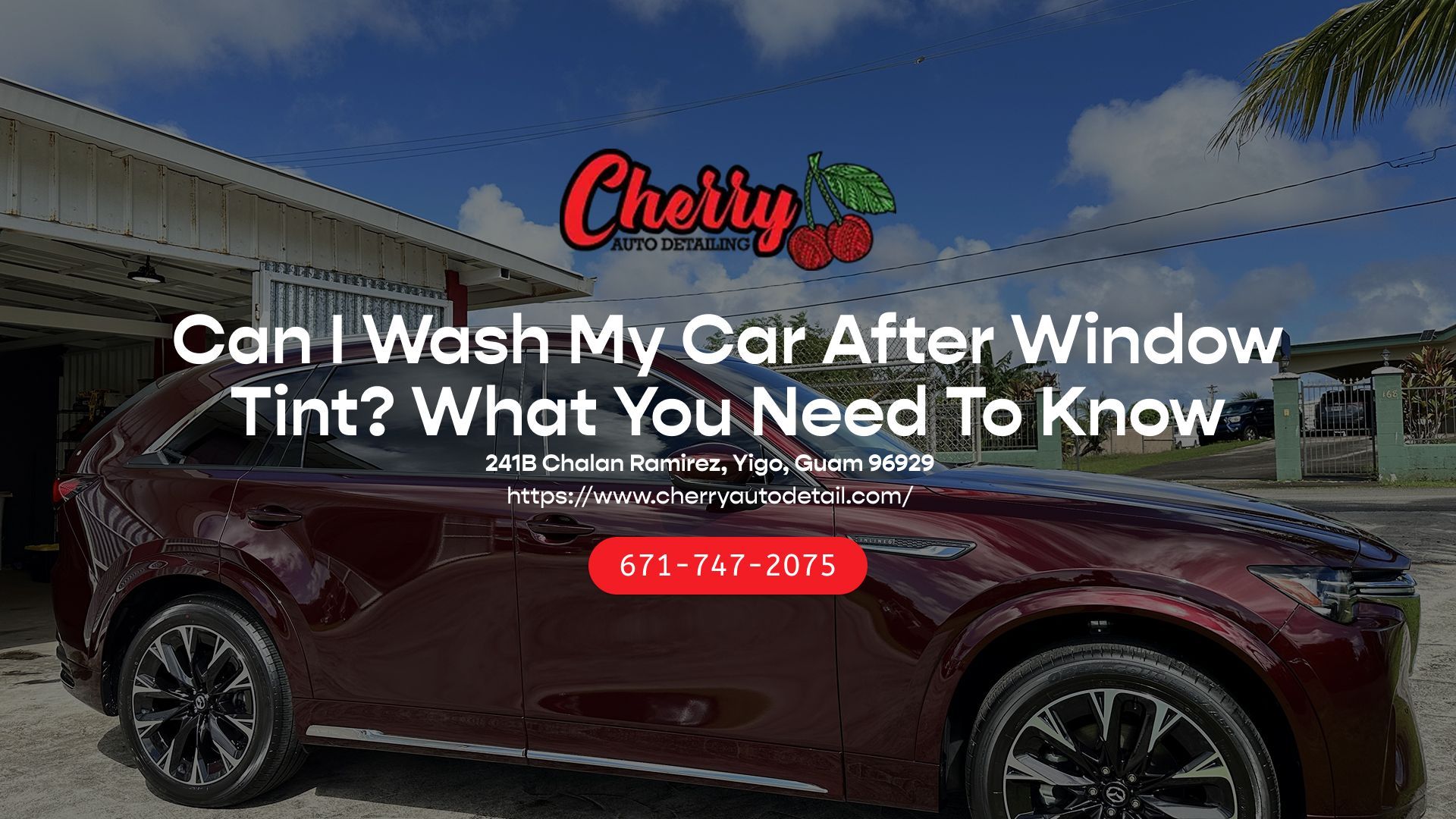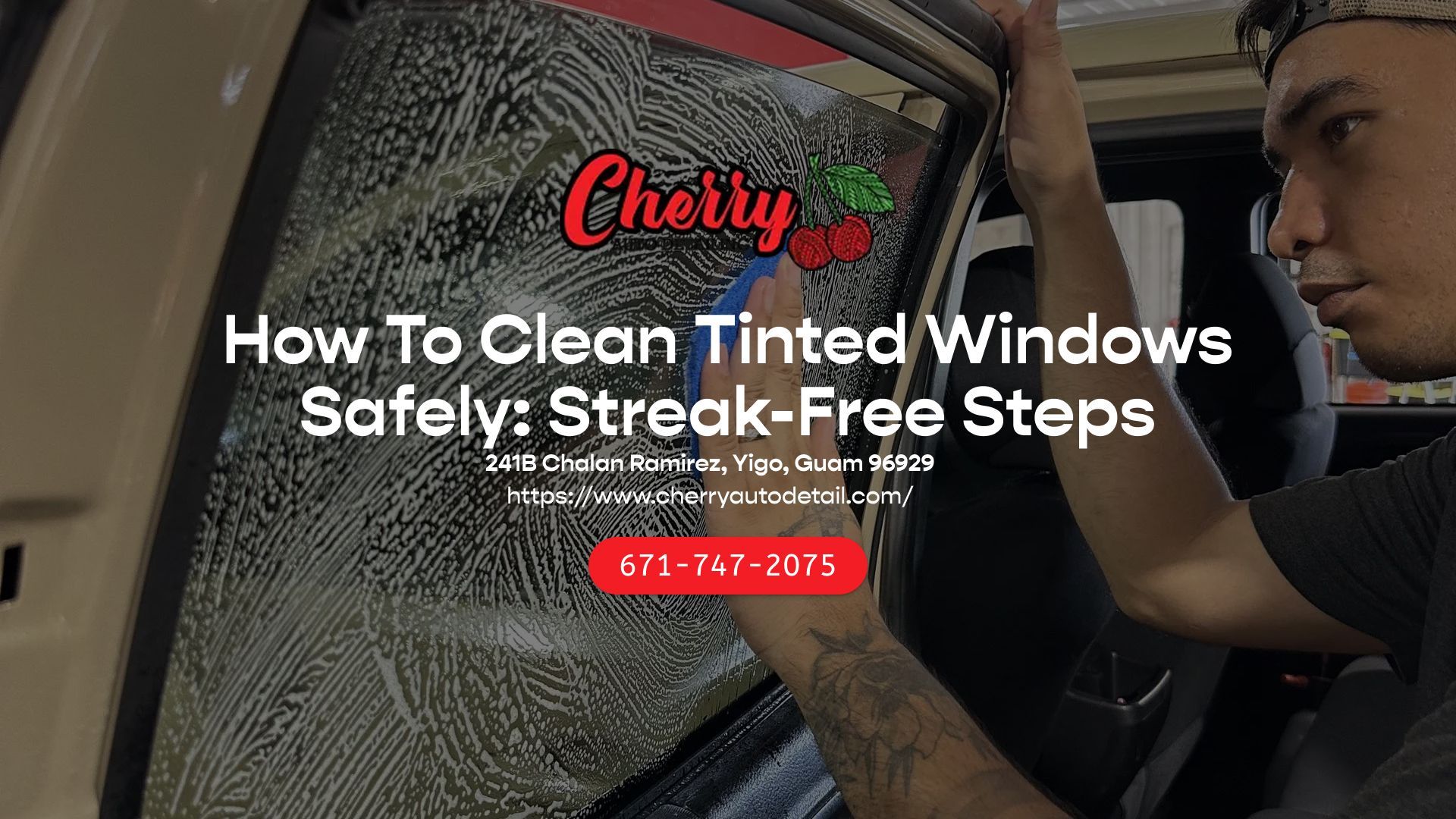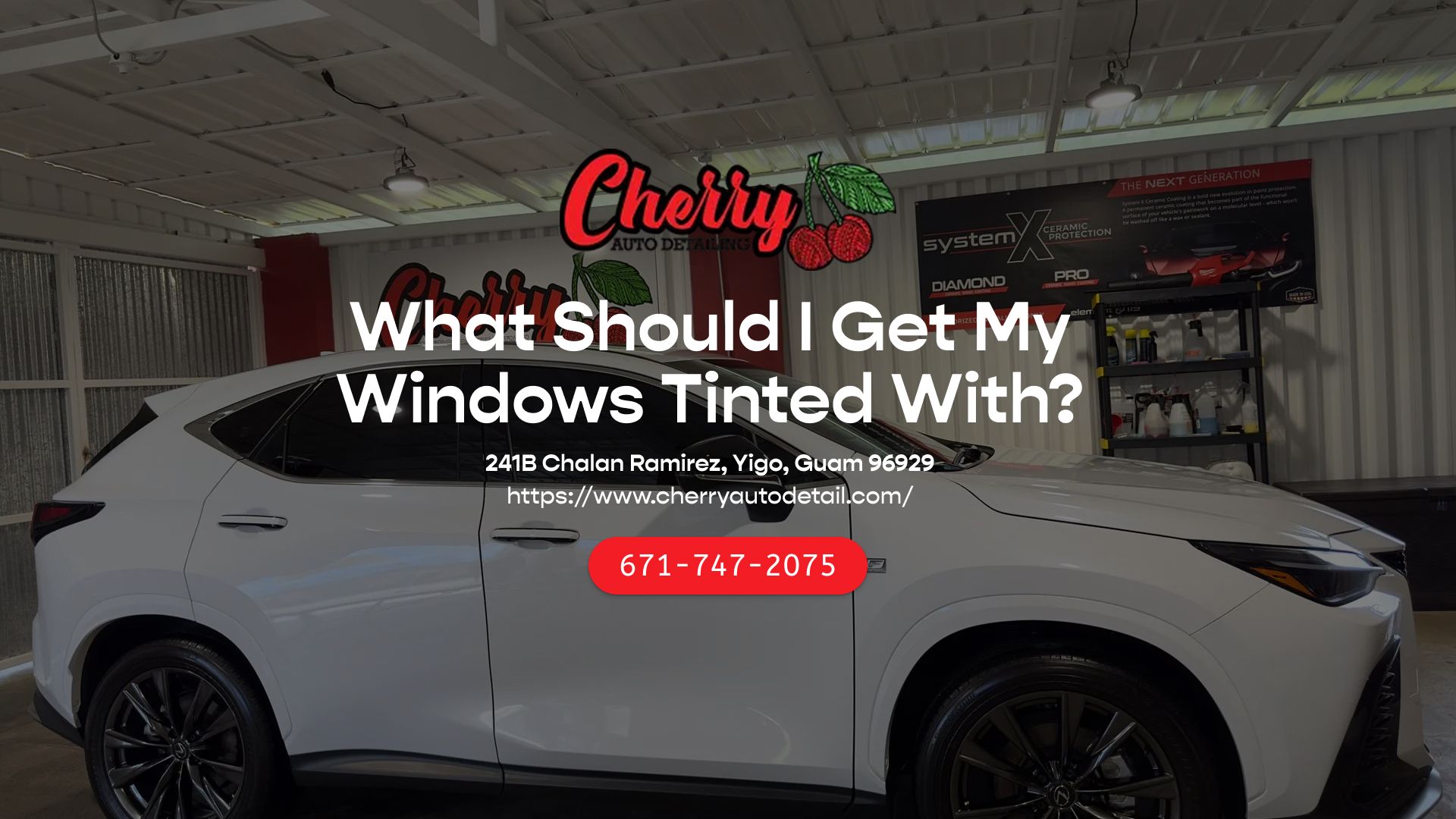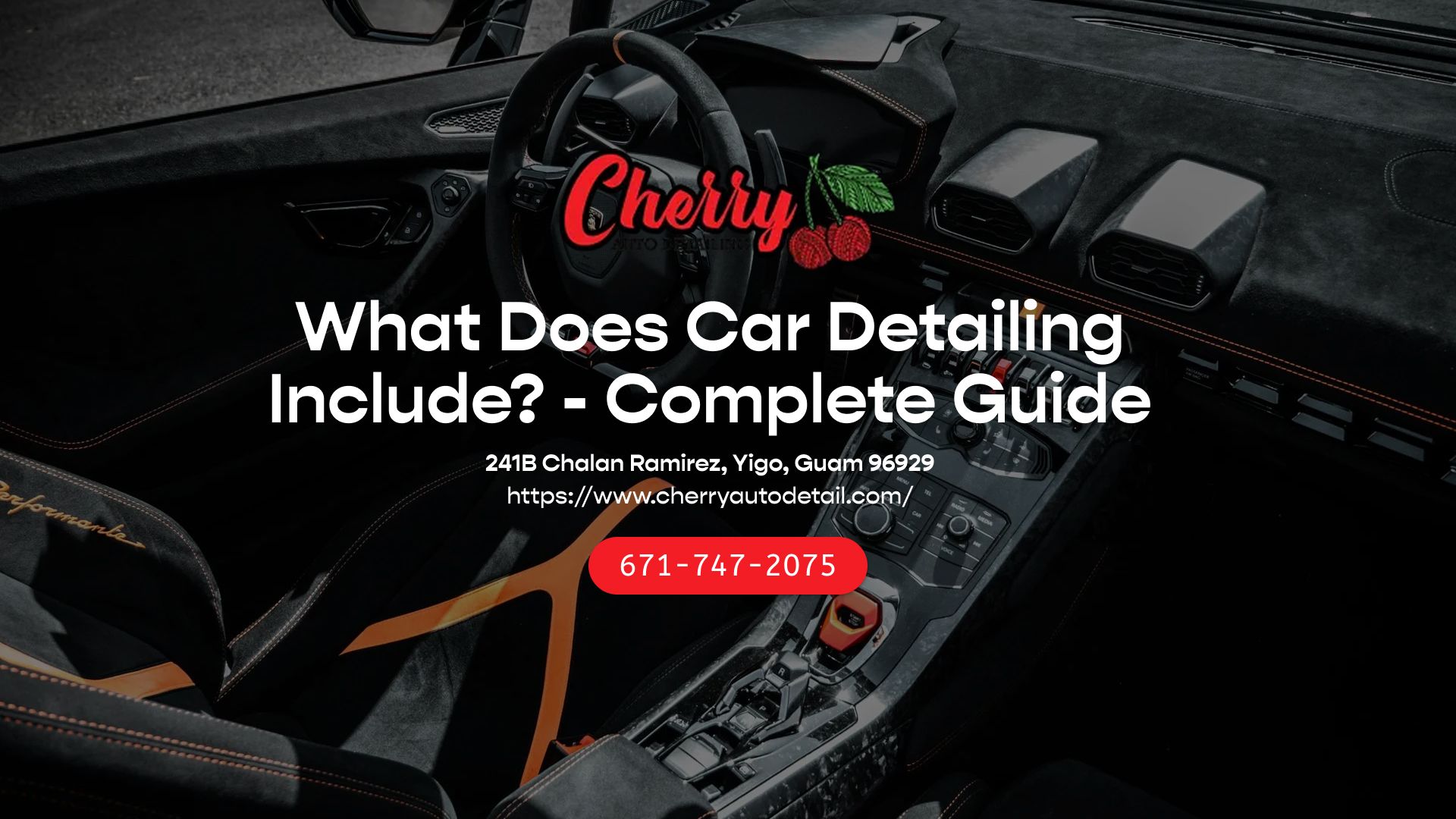How Much Does It Cost To Wrap A Car?
Table of Contents
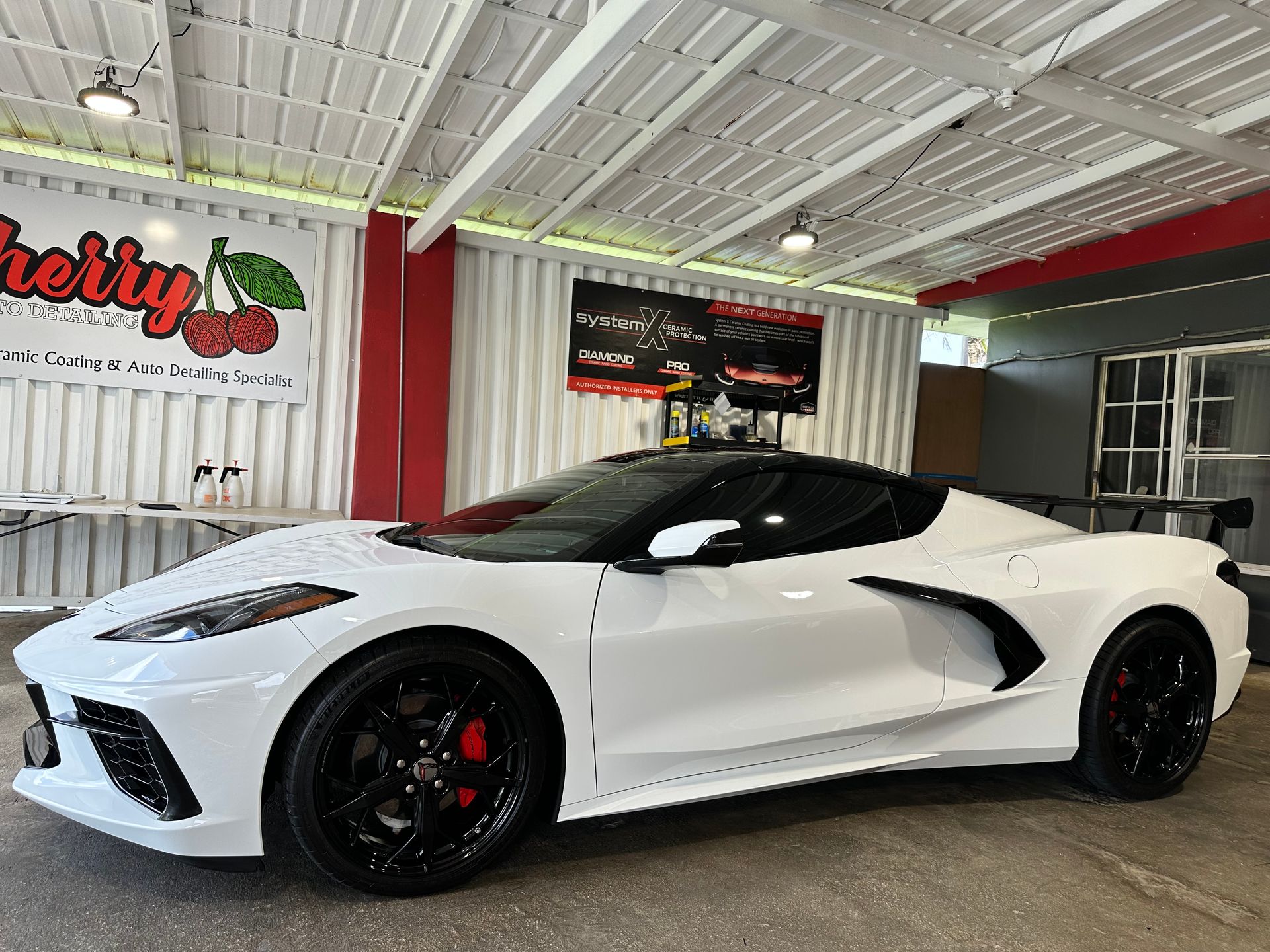
Car wrap service is an ideal solution to enhance a vehicle’s appearance, protect its original paint, and boost resale value. As a form of automotive customization in the aftermarket industry, the car decal is removable, unlike the permanent paint on the original paint. So,
how much is the cost to wrap a car?
Cherry Auto Detailing offers
a car decal price in Guam, for you to consider when choosing the service and wrap type.
Key Takeaways
- The majority of car wraps range between $2,000–$6,000, and luxury or exotics at $12,000.
- Sedans are the least expensive to wrap, and trucks, SUVs, and high-end cars are expensive on a size and complexity basis.
- Popular finishes are matte, glossy, satin, carbon fiber, and chrome, and they vary in price and visual effect.
- Price depends on vehicle parts, installation techniques, film brand, climate, and design complexity.
- A well-cared-for wrap usually lasts 4–7 years; frequent washing and UV protection increase duration.
- Alternatives such as paint protection film, a ceramic coat, or a complete paint would be appropriate for owners who want varying degrees of security and flair.
Car Wrap Costs By Vehicle Type
Vinyl wrap film helps to change a simple car quickly and easily, making it the ideal choice when you want to change your style without painting. Usually average price for a car wrap service is valued by size, complexity of shape, film type, and coverage. Below is the list for wrapping car costs with different vehicles.
| Vehicle Type | Typical Full-Wrap Range | Notes |
|---|---|---|
| Sedan | $2,000–$4,000 | Lower surface area; costs vary with hood, doors, and door jambs coverage. |
| SUV | $2,800–$5,500 | More panels and curves; larger apply and trim workload. |
| Truck | $3,000–$6,000 | Bigger beds and bumpers; commercial layouts add setup time. |
| Luxury/Exotic | $5,000–$12,000+ | Premium films and delicate handling; complex curves. |
| Partial Wrap | $350–$1,800 | Panels only (roof, hood, mirrors); great budget play. |
Popular Car Wrap Finishes And Their Prices
Car wrap services offer a variety of wraps with different materials, styles, and finishes to suit the needs and styles of customers. Depending on the type of wrap, they have different prices based on the cost of materials and installation.
Matte Wrap
Matte films create a flat, non-reflective surface that gives your vehicle a discreet, sophisticated look. They are often chosen for their price of $2,000–$4,500 and their unique look compared to gloss films.
Gloss Wrap
Gloss vinyl films replicate the look of original paint with a glossy, reflective finish for $2,000–$4,500. They are the most popular choice for drivers who want a natural, paint-like look without the need for permanent repainting.
Satin Wrap
Satin films are a hybrid of matte and gloss finishes, providing a smooth shine that reduces glare while maintaining color depth. Many car owners choose this custom film option for its balance of elegance and sophistication, with a price tag of around $2,500–$5,000.
Carbon Fiber Wrap
Designed for high-performance styling, this finish mimics the textured weave of real carbon fiber. It is often applied to trim pieces such as side mirrors, door panels, spoilers, and aerodynamic components. Carbon fiber wraps typically cost around $3,000–$6,000, reflecting the specialty nature of the material and the precision needed for application.
Chrome Wrap
Chrome film is the most premium film due to the cost of materials and labor-intensive installation process, with prices ranging from $6,000–$12,000+. The finish gives a distinct enhancement to the vehicle's appearance with its mirror-like shine and depth of color.
Factors That Impact Car Wrap Cost
Many factors affect the price to get a car wrapped, from materials to labor and location. Understanding the factors that affect cost will help you estimate the costs you need to prepare when using vinyl wrap services.
- Vehicle Parts: Vehicles have areas such as front and rear bumpers, doors, rooflines, and sunroofs that are complex and require more precision, increasing the amount of labor and time required.
- Installation Techniques: Installing a car wrap requires a professional to stretch, apply, and press the vinyl evenly with complex curves, tight edges, and intricate panel shapes, which increases the difficulty and cost.
- Film Technology: Premium brands such as 3M offer advanced finishes, durability, and warranties. Choosing a specialized film increases the total cost.
- Climate And UV Exposure: In harsh UV areas, high-quality films last longer and resist fading. Your geographic location can directly impact the quality of film recommended.
- Design Complexity: Simple color changes are faster and less expensive than custom printing. Fleet graphics or complex designs require longer setup, printing, and installation times.
How Long Does It Take To Wrap A Car?
Expect to wrap a car in about two to three days for most full wraps, including preparation, installation, and post-installation curing. The wrapping time varies depending on vehicle complexity, film type, shop workload, and curing conditions. Smaller cars or cars with partial wraps may be completed faster; cars with complex exteriors typically take longer.
Tips To Prolong Your Car Wrap’s Life
Caring for your wrap is essential to maximizing durability and keeping the vinyl wrap in top condition, maximizing your investment.
- Wash Your Car Regularly: Wash your car regularly with pH-balanced soap and gently wash by hand instead of using a brush to avoid damaging the film and maintain the color.
- UV Protection: Parking your car indoors reduces exposure to sunlight, which helps minimize damage, wear and tear, and prolongs the life of the film.
- Spot Cleaning: Quickly treat stains such as tar, insects, and bird droppings as soon as they are discovered to protect the film surface.
- Edge Protection: Avoid close contact with high-pressure washers. Gently drying helps prevent peeling and maintains the ability to remove for future changes.
Alternatives To Vinyl Car Wraps
Car decals are versatile, but they are not the only option. Here are some popular alternatives that fall into the category of surface protection solutions.
- Paint Protection Film: By applying a clear film, PPF helps protect the vehicle from scratches and peeling. It is more expensive than car wraps, but it is superior in scratch protection.
- Ceramic Coating: Ceramic coating increases gloss and makes cleaning easier. However, it does not discolor or thicken like decals.
- Stickers And Stripes: Decals or stripe kits offer targeted customization, making them an economical way to freshen up your vehicle without a full wrap.
- Paint Job: Paint is a permanent coating and creates a permanent finish. Unlike decals, car paint cannot be easily removed and can affect resale.
- OEM Preservation: Some car owners skip decals to keep the OEM paint intact. This works well if you plan to resell quickly or return the leased car.
Book Your Car Wrap Near Me Today!
Ready to get a car wrap service and give your car a new look? Contact Cherry Auto Detailing for a free quote and consultation on the right car wrap in Yigo, GU, and nearby areas. Our experts can help you transform your car into a stylish and new one.

FAQs
How long does a wrap last?
With care and longevity, most quality wraps last 4–7 years in mixed climates with UV exposure management.
Can I remove it myself?
Yes. Removability is just one advantage that a vehicle wrap possesses. You can easily remove a vehicle wrap by heating the panels, lifting the corners, and easing away old film.
Does wrapping hurt paint?
No. Factory finish is maintained by correct installations. We begin with surface preparation and paint inspection to ensure compatibility.
How much does a chrome wrap cost?
A chrome wrap would cost $6,000–$12,000+ for material and extreme edge work.
Is wrapping cheaper than painting?
Typically. As compared to a high-end paint finish, a vehicle wrap is normally cheaper, quicker, and readily removable.
